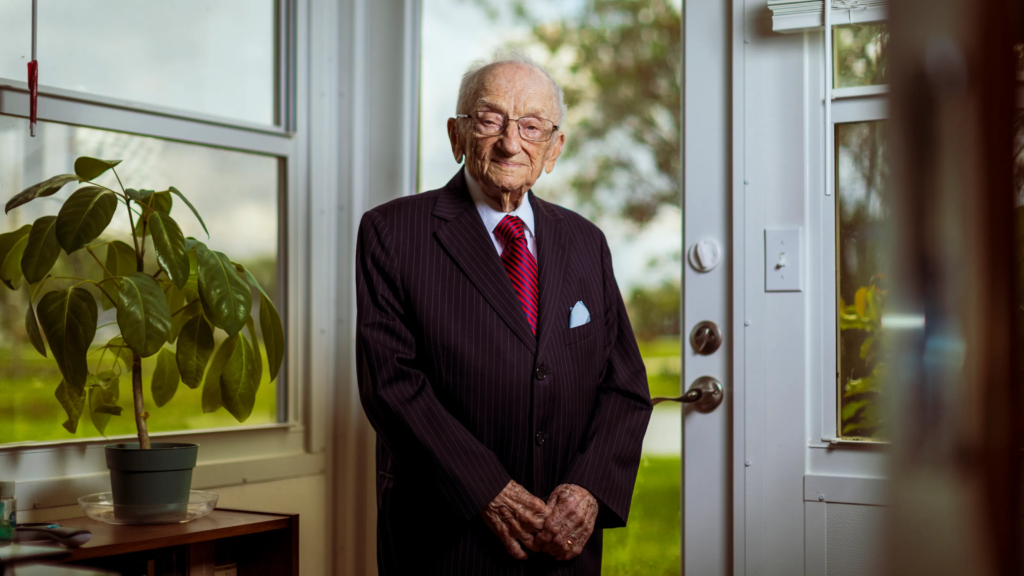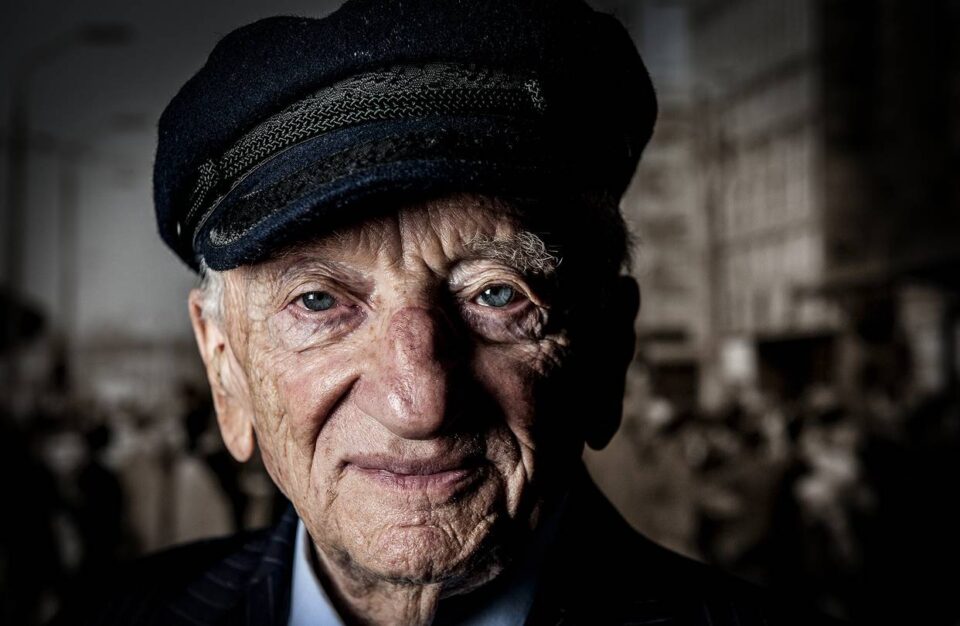The last living prosecutor from the Nuremberg trials after WWII has died at the age of 103.
Ben Ferencz was only 27 years old when he helped convict 22 Nazi officers of war crimes and crimes against humanity.

He eventually lobbied for the creation of an international court to prosecute war crimes, which was accomplished in 2002.
Ferencz died quietly in his sleep on Friday evening at a Boynton Beach, Florida assisted care home.
The US Holocaust Museum confirmed his death, saying the world has lost “a trailblazer in the battle for justice for genocide victims.”
Ferencz was born in Transylvania, Romania, in 1920, but his family immigrated to the United States when he was young to avoid antisemitism, eventually settling in New York.
After graduating from Harvard Law School in 1943, he joined the US Army and participated in the Normandy landings and the Battle of the Bulge. He eventually advanced to the rank of Sergeant and was assigned to a team charged with researching and accumulating evidence of Nazi war crimes.
The squad was based with the troops in Germany and would enter liberated concentration camps, taking notes on conditions and interviewing survivors.
Ferencz described finding victims “piled up like cordwood” and “helpless skeletons with diarrhoea, dysentery, typhus, TB, pneumonia, and other maladies, retching in their louse-ridden bunks or on the ground with just their mournful eyes screaming for help” in a subsequent account of his life.
He characterized Buchenwald, one of Germany’s largest concentration camps, as a “charnel chamber of unfathomable horrors.” “There is no doubt that my experiences as a war crimes investigator of Nazi extermination centres were profoundly traumatizing,” he said. “I’m still trying not to think about or talk about the details.”
75 Years of Nuremberg Remembrance
After the war, he returned to New York to practice law, but was soon recruited to assist in the prosecution of Nazis at the Nuremberg trials, despite having no prior trial experience.
He was appointed chief prosecutor in the trial of members of the Einsatzgruppen, mobile SS death squads that operated across Nazi-occupied Eastern Europe and were responsible for the deaths of over a million people.
All 22 men on trial were found guilty, with 13 receiving death sentences and four being executed.
Ferencz, who was fluent in six languages, including German, remained in West Germany after the trials concluded and assisted Jewish groups in obtaining a reparations settlement from the new government.
In his latter years, he became a professor of international law and advocated for an international court to punish leaders of nations found to have committed war crimes, authoring several books on the subject.
The International Criminal Court was established in The Hague, Netherlands, in 2002, but its efficacy has been hindered by the refusal of some important countries, notably the United States, to participate.
Ferencz leaves behind a son and three daughters. Gertrude Fried, his boyhood sweetheart, died in 2019.




